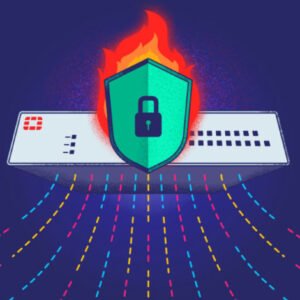
In a surprising move, technology giant Apple has decided to discontinue its in-house “Pay Later” loan scheme in the United States. Introduced just last year, this scheme allowed Apple Pay Later users to…
Read more
In this article, we’ll explore several powerful tools used for password cracking and wordlist generation. These tools are essential for security professionals, penetration testers, and anyone interested in understanding the vulnerabilities associated with…
Read more
In the world of web development, backend frameworks play a crucial role in building robust and scalable applications. Here, we present a list of the most popular backend frameworks based on the number…
Read more
A website can be a game-changer for your business. It can be the difference between success and failure. But what makes a website good? A good website is one that has excellent content,…
Read more
Microsoft has decided to postpone the release of its AI Recall feature, originally scheduled to ship with the new Copilot+ PCs on June 18. The decision comes in response to security and privacy…
Read more
Life360, a prominent location tracking company, has recently disclosed a data breach that has impacted personal information stored on a customer support platform. The incident came to light when a threat actor contacted…
Read more
In the realm of modern cloud computing, where hybrid technology infrastructure is the norm, security threats are an ever-present concern. Recently, customers of the IT services provider Snowflake have found themselves in the…
Read more
In a shocking incident, a disgruntled employee wreaked havoc on his former company’s computer systems, causing a loss of approximately S$918,000 (US$678,000). The employee, Kandula Nagaraju, 39, was sentenced to two years and…
Read more
The Dutch Military Intelligence and Security Service (MIVD) has issued a warning about the extensive impact of a Chinese cyber-espionage campaign. The campaign, which was unveiled earlier this year, is reportedly “much larger…
Read more
Cybersecurity vulnerabilities are weaknesses that can be exploited by attackers to gain unauthorized access to systems, steal data, or cause other forms of harm. Here’s an in-depth look at the top 100 vulnerabilities…
Read more
Every website aims to boost sales and generate more business. To achieve this, your website must include certain crucial elements. Here are the most important ones: 1. A Balanced Homepage Your homepage is…
Read more
Have you ever visited a website and thought, “This is terrible”? Many websites out there seem to be stuck in the past, with outdated designs and content. If you’re a website owner, it’s…
Read more
As the Islamic calendar’s final month, Dhu al-Hijjah, commenced on June 7, it marked not only the countdown for millions of Muslims embarking on the Hajj pilgrimage but also a period of heightened…
Read more
The landscape of cyber threats is vast and constantly evolving, posing significant challenges to individuals, organizations, and governments worldwide. Here, we explore into the top 100 cyber threats, explaining each one with examples…
Read more
Yesterday, LastPass, a popular password management service, experienced an almost 12-hour outage, leaving its users locked out of their accounts. The company attributed the outage to a faulty update to its Google Chrome…
Read more